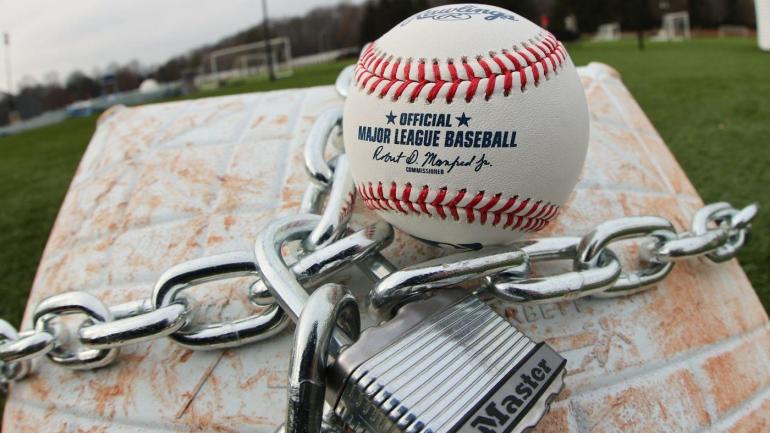
In an effort to agree to a new collective bargaining agreement and end the owner-implemented lockout that's been in place since Dec. 2, the players' union and MLB officials met face-to-face on Thursday for their latest negotiating session. That session, in which the players presented their latest proposal for a new CBA framework, lasted just 15 minutes and seemed to offer little hope that the standoff will end any time soon.
Here are the two main thrusts of the players' latest proposal:
- The union has dropped its request to lower the arbitration from three years to two years. Rather, they've offered up an alternative framework in which 80 percent of players with between two and three years of MLB service time would be eligible for salary arbitration (source: Evan Drellich of The Athletic). Under a system known as "super two," 22 percent of players with between two and three years of MLB service time were eligible for arbitration under the most recent CBA, as well as all players with at least three years of service time. In essence, this proposal would greatly expand that super-two pool.
- Players have asked that the bonus pool for pre-arbitration players -- i.e., those players who typically make the MLB minimum salary or thereabouts -- be expanded from $100 million in their prior proposal to $115 million (source: Bob Nightengale of USA Today). That growth of the pool reflects the fact that the union has reduced the number of players that would be eligible for arbitration under its current proposed framework. As well, the union is now proposing to distribute the pool to a total of 150 players as opposed to 30 players in the previous version.
This proposal would seem to embody very little movement by the players' side, and to the extent that's the case it reflects a more longstanding trend on the part of ownership -- one that stretches back at least to the negotiations over the COVID-compromised 2020 season -- to offset concessions with heightened demands elsewhere in their proposals. In that sense, Thursday's proposal can be interpreted as a declaration that MLB needs to show genuine movement in their offers.
Also of note:
Dan Halem and Bruce Meyer, the lead negotiators, had a side meeting after the main meeting ended. That conversation was about 20 minutes. Said to be candid. MLB will get back to MLBPA as to next meeting’s scheduling.
— Evan Drellich (@EvanDrellich) February 17, 2022
Exact plans have not been finalized, but MLB and the MLBPA are planning multiple bargaining sessions as soon as next week, reports ESPN's Jeff Passan. It's possible they will meet every day. MLB has indicated a deal will need to be reached by Feb. 28 for the regular season to begin on time.
At this juncture, the two sides seem close to agreement or within range of being close to agreement on the implementation of the universal DH, expanded playoffs (players have offered a 12-team playoff while owners want 14), the introduction of a draft lottery to provide soft incentives against tanking, and the size of the pool from which local revenues are shared (MLB wants it unchanged, players want to reduce it by a relatively modest $30 million). However, they remain far apart on what's become known as the core economic issues facing the sport. Owners want arbitration to remain at three years with very limited super-two exceptions, and their last offer for the pre-arb bonus pool was a total of $15 million (compared to the $115 million figure noted above). As well, the two sides are almost $150 million apart on the new minimum salary, and MLB in essence wants to harden the luxury tax to the extent that it will function like a hard salary cap while also wanting to raise the penalty thresholds by so little that they don't even keep pace with inflation. There's also a significant distance between how the two sides propose to deal with service time manipulation by teams.
Meantime, time continues to tick by. Spring training games are scheduled to begin on Feb. 26, and there's almost no chance that will happen as planned. As ESPN's Jeff Passan notes, we're now just 11 days from MLB's declared deadline for the regular season to be able to start on time. The history of such matters teaches us that agreements can come together quickly, but present causes for optimism are hard to find.






















